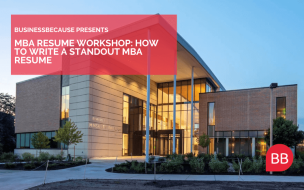It raises the question: are MBA’s actually worth the tens of thousands that schools demand?
The Financial Times’ 2011 b-school league table looks very different when you rank schools by value for money (calculated by comparing factors including fees, salary after graduating and duration of course). In fact, schools that rank worse overall tend to outdo top schools for value.
This week BusinessBecause speaks to three students about how they funded their MBA and whether they think it was the right decision.
Kerubin Pahula, EBS Business School
I have a full scholarship which is partly funded through the EBS money and partly through funds of the German Academic Exchange Service.
It was not difficult to get this because my home University (University of Stellenbosch Business School) and EBS have an agreement. EBS agreed to provide a scholarship for Stellenbosch Business School students to cover basic living costs, as well as tuition fees and, in return, EBS students have also the possibility to attend the University of Stellenbosch Business School free of charge for their mandatory semester abroad.
It would be impossible for me to go to EBS without the scholarship as I didn’t have any other financial options.
The MBA was good value for my money. Because of the MBA I’ve become fearless, flexible and can adapt easily to new environments. However, my opinion on whether an MBA is good value for anyone’s money really comes down to an individual’s goals.
Oscar Lares, Grenoble Ecole de Management
I’m paying only about €21,000 for my MBA because my scholarship covered 15%. Obviously I’d like to see a financial return on this investment! But even if I don’t, I still think it's worth the fees.
It's not just about the money – an MBA opens other opportunities. You’ll go abroad, get in touch with the people there and spend hours every day in a room full of professionals from around the world. It's a chance to open your eyes, become more critical and develop your personality.
That said, I did set a cap of $30,000 when choosing a school, and I think top schools would be wrong to charge much more than they already do. The schools will always have to compete with each other, so hopefully things will never get too ridiculous.
Charles Odoom, Nyenrode
I have a full tuition scholarship from Nyenrode through the Global Campus platform. Global Campus is an online platform connecting students to universities and scholarship opportunities around the world.
For the tuition scholarship I had to meet their requirements - including GMAT scores and interviews. I found out about it all through being a registered member on the Global Campus platform and decided to give it a shot.
Since I had to quit my job for the MBA, I had to depend on my savings which has not been an easy task. So the MBA would have been a tough decision to make because there was no way to afford tuition fees for the school. There were no alternative financial options at all.
Business schools all over the world want to differentiate themselves to stay competitive to attract MBA Candidates. Currently, price has become a major factor in determining a good business school. Higher fees allow the schools to offer more innovative and competitive programs.
They are able to attract the best professors from around the globe to offer some specific courses. These all add to the image of the school which eventually gets it into the rankings. Once a school is in a good position on the MBA rankings, the demand for MBA graduates from big corporates goes up, and gives more value for money for the candidates.
RECAPTHA :
9e
a5
be
db







